Inside: As parents, we get stuck in a rut of always saying ‘no.’ It becomes almost automatic. Try enthusiastically saying ‘yes’ to one request from your kids today and strengthen your family bonds, and connection with your child. Say yes to childhood and a happy family!
I was eating with my family at our favorite Mexican restaurant. While we were waiting for our food to come, my son was looking at his favorite ‘search and find’ book. He asked me to find the smiling crocodile. He knew where it was — he was asking me just for fun.
The word “no” bubbled up within me. Actually, the phrase was more like “no, not right now,” punctuated with a sigh. But, before I responded, I paused and instead said, “Yes, I can find it.” He responded with a huge grin and a little laugh. Why was I so ready to automatically say no?
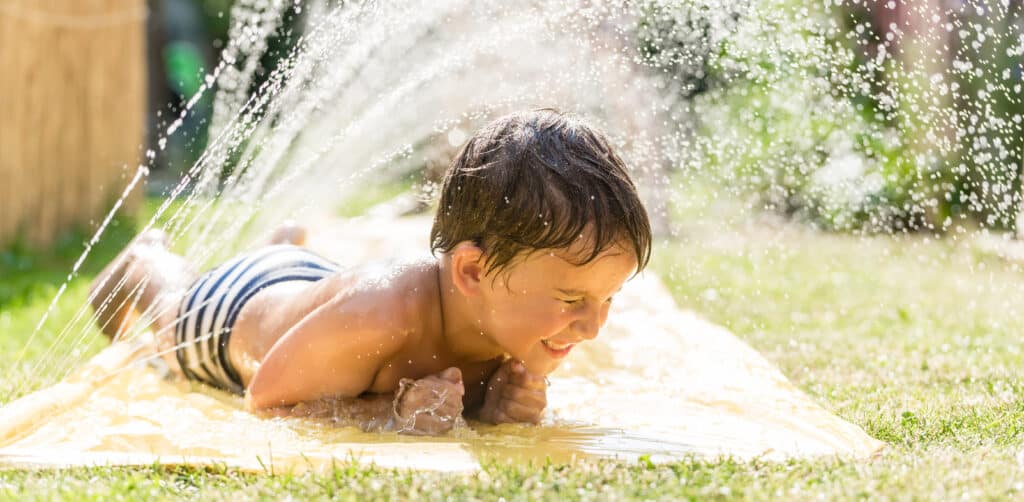
Why is “no,” such an automatic response in us as parents?
Probably because children need limits — so it is something we often need to say. Maybe because we are tired. But, perhaps sometimes it is simply a habit to say no.
Our family lunch could have gone differently. I could have said, “no, not right now,” and tried to have a conversation with my husband while our son made louder and more disruptive bids for our attention.
But, it was so easy to say ‘Yes.’ It was such a little request — but yet such an important one.
It wasn’t about needing help to find the objects. He knows where they all are.
It was about connection.
Saying yes, finding those objects led to a fun little family lunch. My husband and I talked, we found objects, and our son was engaged and connected.
So often family moments are filled with chaos and energy, but if you look for it — if you say yes to it — there is joy there too.
Consciously saying yes that day made me realize two things:
- There is joy in every day, even the mundane — we just have to be open to it.
- As parents, we have the power to “set the tone” of our family.
You can set a tone of gentle open-heartedness, gratefulness, receptiveness, and joy in your family. All it takes is being able to pause, a little change in perspective, stepping out of your comfort zone, and this guide.
What Saying YES is not about
This is not about overcommitting yourself to endless activities. There is a power in saying “no” and being intentional in how your family spends their time.
This is not about letting go of limits and letting your child watch all the TV they want to, talk back, and eat candy every night for dinner. This is not “Yes Parenting” in its extreme.
This is not about having a “Yes Day” where you say yes to everything your child says for a whole day (although this could be an interesting experiment to try and jumpstart your “yes”).
This is not about ignoring your own self-care needs, your own limits. There may be times when you need to say no, so you yourself can recharge and reset.
Instead, this is about being a little more open-hearted and turning off that automatic “no.”
Saying “Yes” Teaches Your Child about Flexible Self-Regulation
The key skill our kids are learning is self-regulation, sometimes referred to as self-control. I confess that I have used those terms interchangeably as well. But, regulation implies something much different from control.
We often think about self-control as sheer willpower. Being able to keep our emotions, behaviors, and impulses under control. We just keep stuffing all that stuff, down, down, down, until we explode.
That is not flexible self-regulation.
Regulation is meant to be flexible. It isn’t always about tamping down, it’s also about ramping up.
It’s about knowing when to use a little more control and when to let go.
My favorite quote about this comes from researchers who devoted their careers to studying self-regulation. They said:
“The human goal is to be as undercontrolled as possible and as overcontrolled as necessary.”
Block & Kremen (1996)
To be as undercontrolled as possible — to be able to let go let loose, to live. Saying “yes” helps us to do that. Yes is the other side of limits, of control, of the reactive “no.”
In “The Yes Brain: How to Cultivate Courage, Curiosity, and Resilience in your Child,” authors Daniel Sigel M.D. and Tina Payne Bryson Ph.D. discuss the difference between the ‘Yes Brain’ and the ‘No Brain’:
The No Brain leaves you feeling reactive when you interact with people, which makes it nearly impossible to listen, make good descisions, or connect with and care for another person. A focus on survival and self-defense kicks into gear, leaving you guarded and shut down when it comes to interacting with the world and learning new lessons. Your nervous sysetm intiates the fight-flight-freeze-faint response… preventing you from being open, connecting to others, and offering flexible responses.
The Yes Brain, in contrast, emerges from different circuits in the brain that become activated and lead to receptivity rather than reactivity…As a result…we feel much more capable of addressing challenges in a strong, clear, and flexible way. In this Yes Brain state we open ourselves to a sense of equanimity and harmony, allowing us to absorb, assimilate, and learn new information.
Pg. 4 The Yes Brain: How to Cultivate Courage, Curiosity, and Resilience in your Child,
Saying “Yes” isn’t about giving up healthy limits and respectful boundaries, but it is about being a happy family — being open, being flexible, and connecting with each other. Being receptive to connection.
Hearing what the members of your family are really saying. Responding to them, not simply reacting. Children in this kind of family will develop these skills as well. Negative self-talk will reduce and curiosity and resiliency will increase.
When we stop to really listen to what our kids are asking us, we realize all those little requests are ways for them wanting to connect with us, moments of small joys we may be unintentionally missing out on because we are too quick to say “no, not right now, maybe later.” Saying “Yes” just a little more often is about thriving, not just surviving.
Saying Yes is about thriving, not just surviving.
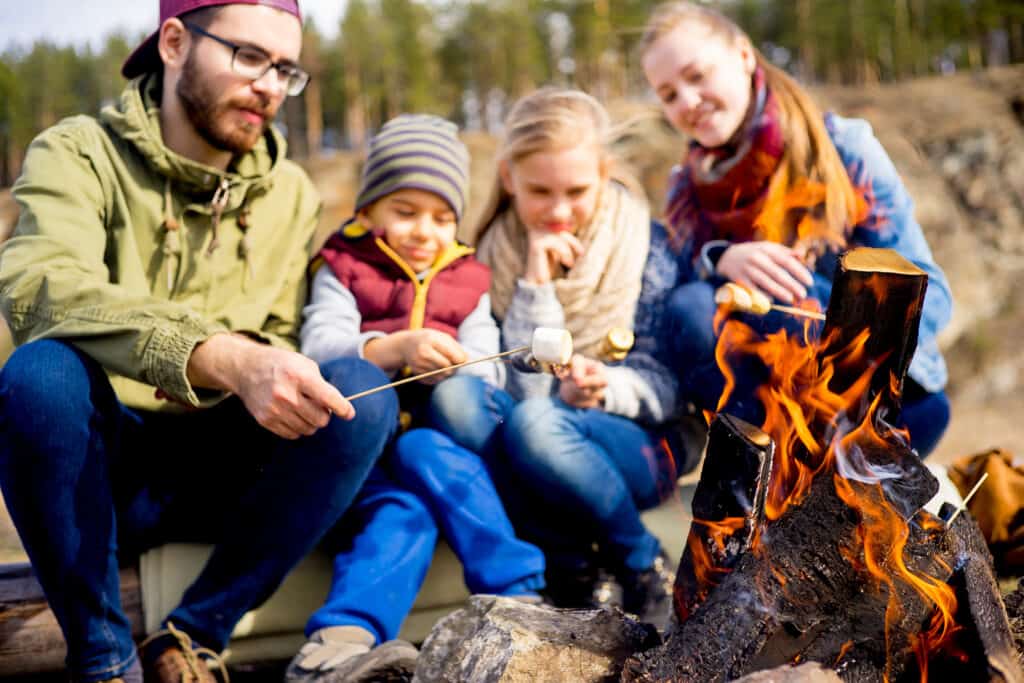
How to Be a “Yes” Family: A Guide to a Happy Family Life
1. Pause before you say “no.”
- Ask yourself, do I need to say no?
- Is this an important limit?
- Can any harm come in saying yes?
You will be surprised how often “no” is your automatic response. We are adults — they are children. They dip their waffles in their orange juice. For fun. We say, ‘no, please don’t dip your waffles in the orange juice.’ But what if we said yes — sometimes?
It is okay for your limits to be different from my limits and from other people’s limits. You might be okay with waffles in orange juice or that might be just a bit too far. The key is to say “no” or “yes” consciously, not automatically.
Before you respond to your child — pause. Breathe in and out. Think.
Ask yourself, what is my child really asking? What do they really need? What is behind this behavior? Do I really need to say no to this? Is there a way to turn this into a yes?
Behavior is communication. We respond fast and automatically, but pausing allows us to really see them.
2. Be Open and Grateful for Little Joys of Childhood
We get caught up in the daily repetitiveness of raising kids — wash, clean, cook, repeat.
Scientists have found that ‘happiness’ decrease after having children. They generally define happiness as “contented and satisfied,” which, I admit, might be a rare feeling as a parent.
Perhaps happiness isn’t the real goal.
In “The Power of Meaning: Finding Fulfillment in a World Obsessed with Happiness,” Emily Esfahani Smith says that it is a meaningful life, rather than a happy one that leads to a true sense of well-being in life.
Meaning is already there, if you look for it — if you say yes to it — it’s there in your everyday moments.
In the middle of that rambunctious afternoon when being with your kids is stressful and taxing — letting it all go and having that family dance party in the middle of the day — that is saying yes.
Every day may not be good…
Alice Morse Earle
but there’s something good in every day.
Yes, I see you and yes we can have a dance party. Yes, you can jump in the puddles.
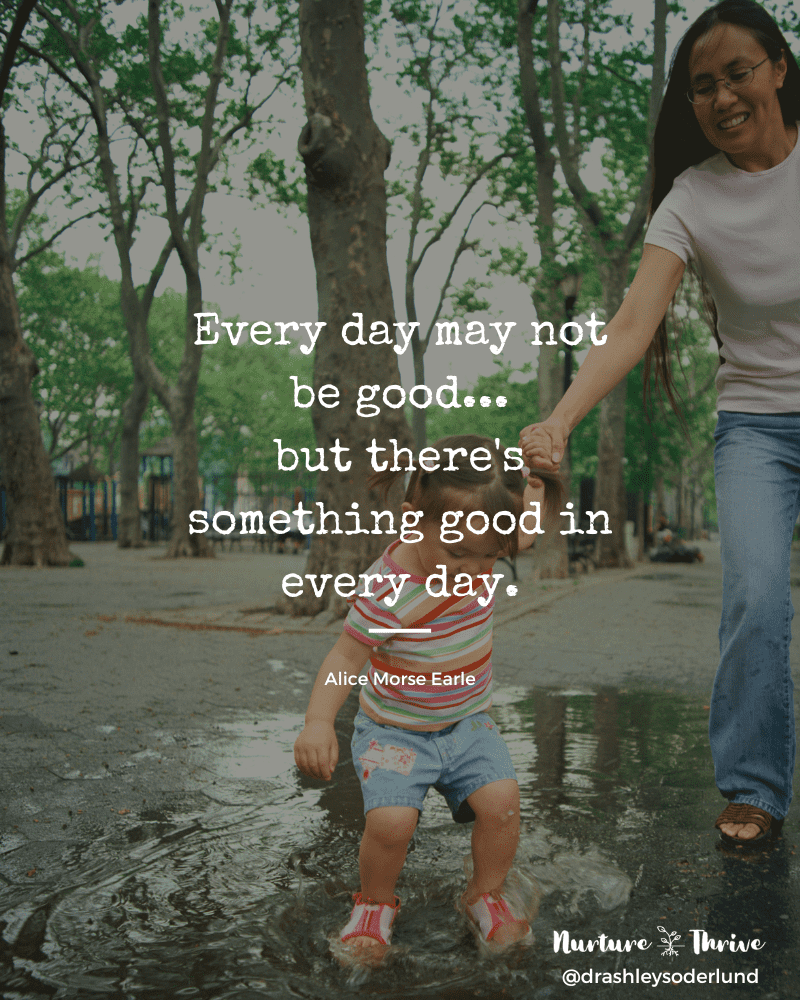
That goodness, that meaning — it’s already there — you don’t have to go out and do anything, buy anything, or be anything — other than what you are right now. An imperfect parent doing their best — looking at her child with open eyes and an open heart and saying yes.
3. Change Your Perspective: Look Up
Transcendent states are those rare moments where you are lifted above the hustle and bustle of daily life. Your sense of self fades away and you feel connected to a higher reality.
Emily Esfahani Smith
Transcendence is when you think about the bigger picture. It can be as simple as looking up in the sky, being in nature, looking at art, writing, or worshipping. You lose the sense of time and get into a state of flow, a state of being.
Research on happiness suggests that when we aren’t checked in with what is happening here and now, we are more unhappy. We are so often checked out. Americans on average check their phones 80 times a day.
Experiencing awe, on the other hand, leads to feelings of oneness, and connectedness.
Looking at 200-foot Tasmanian blue gum eucalyptus trees for one minute led participants to feel less self-centered and behave more generously in a research experiment.
Next time you are having a bad day or a bad moment — take your kids outside. Look up — at the clouds, at the stars, at the trees. Even fussy babies can be soothed by going outside.
So, say YES to right now, this moment in time with your kids, and look up.
The Yes Brain: How to Cultivate Courage, Curiosity, and Resilience in Your ChildThe Power of Meaning: Finding Fulfillment in a World Obsessed with Happiness
4. Accept This Stage of Life
Saying “yes” is acceptance and in that acceptance is love. It’s saying — yes, I have three kids under 5 at home and it’s messy and loud and I am saying “yes” to that.
It’s saying “yes” to the fact that your child is a child and that you love them for being that child. A 25-year-old probably isn’t going to ask to dip his waffles in his OJ.
There is an innocence and curiosity about life that makes a child want to do weird and wonderful things.
How often are we stifling that wonderment? How often are we shutting down the very nature of what it means to be a child?
- Your child is sad about something — Yes it is okay to feel sad.
- Your child is having a hard time sharing a toy — Yes your child is learning and exploring. It is okay to not be done with it yet.
- Your child doesn’t want to take a bath — Yes you are so busy playing. You love playing with that toy. You also love bubbles. Let’s take that toy into the bath!
- It’s your child’s birthday — Yes you can put your finger on the cake and sneak the first taste.
- It’s been a hard week at school. Maybe it was the first week of school. Yes, let’s all get in our PJs at 5:30 p.m. on Friday, eat popcorn for dinner, and watch movies.
- Your child is jumping on the sofa — Yes let’s take the cushion off and you can jump on the floor over here.
- Your child wants to dip their waffles in their orange juice — Yes do it and tell me how it tastes. Be curious.
Say YES to childhood.
Say yes to messy art, sofa forts, climbing trees, pancakes for dinner, ice cream in the winter, staying up and watching for a shooting star, waking up early and watching the sunrise.
We don’t need to control or micro-manage or suffocate our kids. We need limits and they need limits and “no” is a necessary part of that. But — don’t forget to say “Yes.”
Related: The Secret to Calm Parenting? The Pause
Related: Four Benefits of Spending Time in Nature for Children
Related: The Secret to a More Meaningful Life With Kids
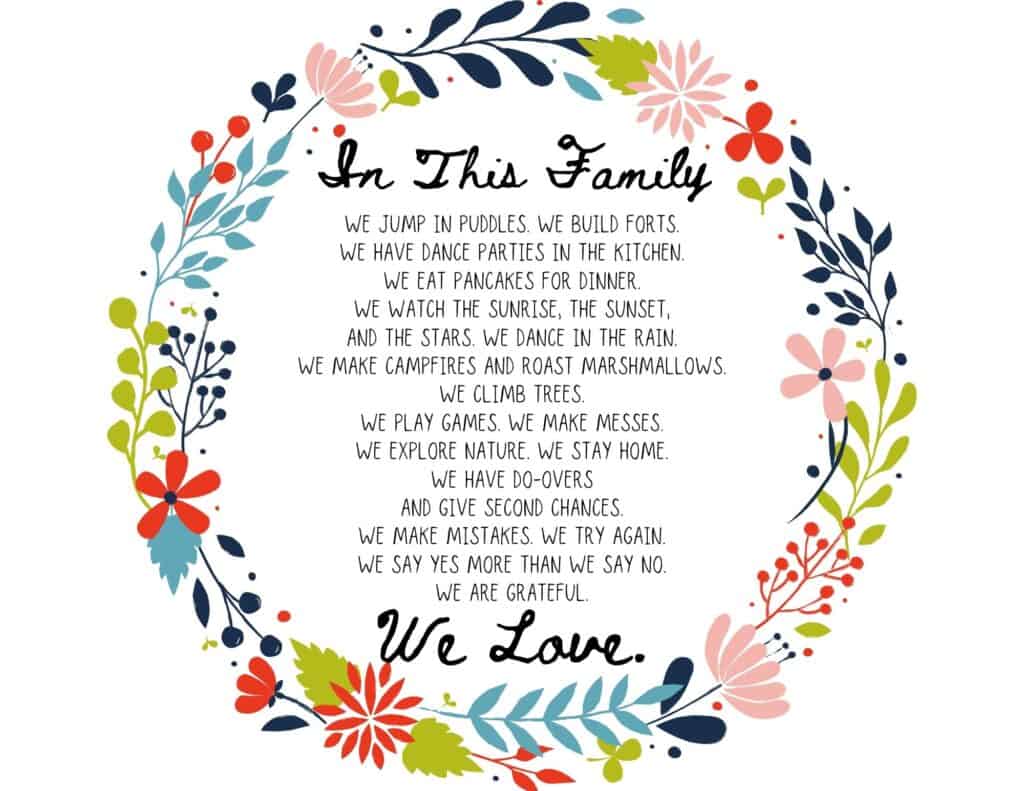
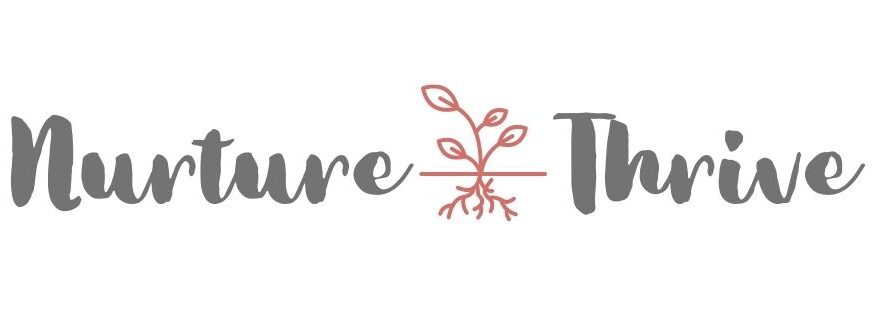

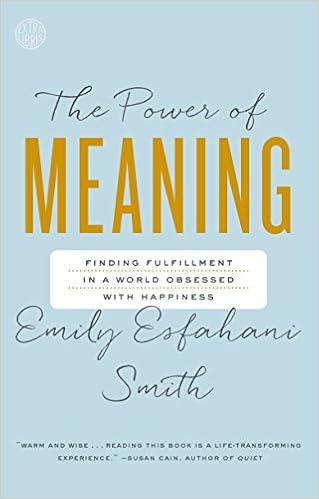
 Mindful and Sensory Activities To Help Anxious Children Break Free of Worry or Upset
Mindful and Sensory Activities To Help Anxious Children Break Free of Worry or Upset